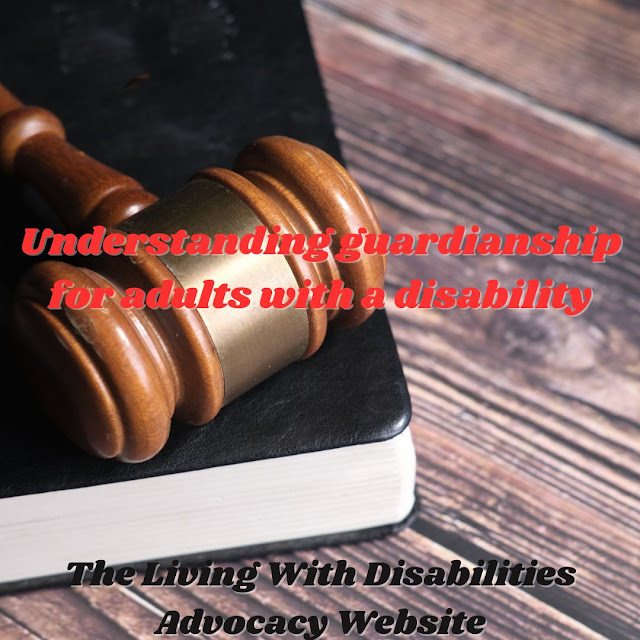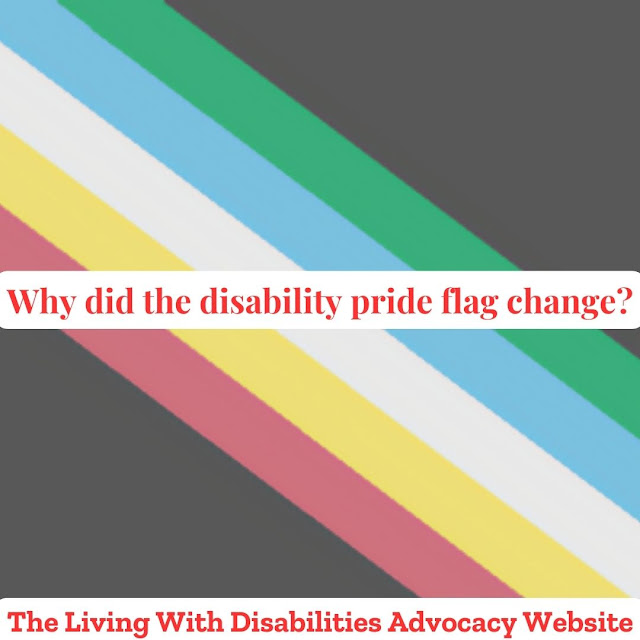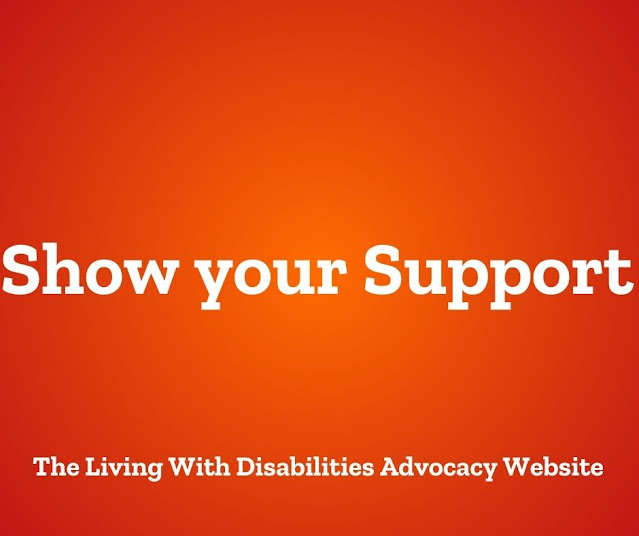Thomas Domsic Story
Welcome to living with, I'm your host Katrina Smith, and on today, so I'll be talking to Thomas Domsic.
0:00:31
Hey, how are you? I'm fine. How are you? Good? It's great. Do you mind if I ask you some questions? Sure. Go ahead. Okay. Um, what do you do for a living? All right. Now, I am not working in anywhere I for the last couple years, I have not worked. But this year, especially, I've been doing a lot of Cerebral palsy advocacies and just raising awareness. Prior to the last couple of years, I used to work at an auto salvage yard doing like customer service and being like a parts professional. I did that for about five years.
0:01:22
Okay,
0:01:24
what age were you diagnosed with cerebral palsy? at two years old
0:01:33
Can you explain what Cerebral Palsy is, and what were the symptoms? Basically? In simple terms, I would say it's basically to your brain, telling your nerves too, do something that basically, in the opposite way, it's supposed to were basically like, I would say that people will Cerebral palsy or are wired differently, and they're not. Our brain isn't connecting to the proper nerves to the that they should, and the right muscles and stuff to function.
0:02:19
Can you explain what Cerebral Palsy is and what type of physical therapy do?
0:02:31
can you say that one more time, please? Can you explain what type of Cerebral Palsy you have and what type of physical therapy you do? Well, my cerebral palsy affects my legs, both my legs
0:02:49
and now say mine is more mild. I can stand up on my own, but far as, like walking, I use a walker, or I use my forearm crutches for physical therapy. I go about the once a week right now. Then they can go. And I do a lot of different leg exercises and stretches and stuff like that.
0:03:17
What was it like growing up and going to school? School wasn't terribly bad. I'll say, as I was younger, the kids were more Curious, which is understandable because no one knows what's Cerebral Palsy is. And, you know, being I guess different to someone else's eyes, and I got made fun of some as a kid, something middle school high school wasn't as bad. There were occasional people. But as I got older, I got to be able to stand up for myself a lot more. So I didn't really get a lot of people making fun of me, whatever. Just because I stood my ground more in, you know, stood up for myself. But even today, I've just been asked why there's occasional people that will make a comment or something, or whatever. But then make an eye roll, I will stand up for myself. And, you know, do the right thing. Did you play any sports in school? Not in high school, did not play any sports. I was a kid, you know, just being on playground stuff, whatever, like we could play basketball and stuff or whatever. But I never felt
0:04:41
like actual Sports in school. I never felt a part of anything. So I never joined anything, because unless I felt like I was rejected from those things, or not welcoming that type of stuff like, you know, playing basketball or anything like I never felt like I was welcomed into that sort of thing.
0:05:04
Do you have any hobbies? I really love to work on cars. Cars are allowing the fun to work on. I do that a lot. I like to paint do creative stuff like that. Those are probably my main things like to do. Okay, when it comes to sports, what sports do you like? And what are your favorite teams? I don't watch a lot of sports right now, but I would have to say, like my top sports to watch would be probably be like baseball would be like my top sport to watch. When I was younger, I was more into other things. I'm occasional watch football or something. But what my teams would be anything Chicago like, I like the White Sox bears, there's. And then I guess you'd say the Bulls too. there you go, I was waiting for that Yeah. When did he start advocating for cerebral palsy?
0:06:14
Probably in my younger 20s. I started, and I've done it through the years. Like I said earlier, these last couple of years, I've done a lot more. I just had more time and stuff or whatever. But
0:06:31
this year, especially in the especially this month, being Cerebral palsy awareness month, I've done a lot of stuff. I painted different buildings for Cerebral palsy awareness. And like their Windows, I've got lights lit up in different places,
0:06:50
friend of mine and I, we got all this town, Chicago lit up green and their bridge and the downtown area over by me lit up. And so I've been just trying to get a lot of awareness done awesome. What type of therapy do you do? Like, besides Physical Therapy, do do any other type of therapy to help with your CP? Not so much. And there's not really anything else today. I do far as like therapy outside to help out. I don't have any real. The other therapy. I do try to stay active myself. Like I don't have like a big exercise routine, but I try to stay active. And,
0:07:49
you know, I try to walk everyday, walk around and stretch, and I will typically do some exercises throughout the week and stuff, whatever. So I checked. Like I said, I was trying to stay. I do.
0:08:03
How does your CP affect your everyday life? It really varies depending on the day. There's some days where it's completely.
0:08:16
It's harder in some ways easier. It just really depends. Some of the harder days are when that's in the wintertime when it's cold outside. And I think a lot of people can relate on that. But like my body just gets really stiff, especially my legs and the wintertime. I always compare it to the Tin Man, and I call it, we call it Ten-man season, but bear far is that summertime isn't as bad, but there's some days where it's raining outside or something in my legs be stiff. So then I'm kind of more stranded, and it's harder to get around where I don't feel comfortable, like getting in my car and taking a driver, anything.
0:09:01
What helps You stay motivated when you're frustrated ?, just looking at the positive outcome. You know, things could be negative, but there's always a positive that you could look out from it whatever. Just always keep that attitude of never give up and always move forward, especially the never give up part. That's one thing I've always been big on. I have a tattoo that says that nor reminds me that of every day. But that's one thing is like, no matter what comes your way. You just got to keep pushing forward to never give up. Do you have a support group like family and friends? Yeah, I would have to say that pretty big support group. It's nice on the and I have a lot of family support, I would say, but definitely friends far as likes to some poly part goes and whatever. And that's what's nice about Facebook is there's a lot of groups on there that, you know, for cerebral palsy, that you could go and check out it's nice, because everybody relates to the same somewhere things or whatever,
0:10:17
and ask questions. And so it's nice to have that sort of community.
0:10:24
What is the most misconception about your disability?
0:10:31
And I would have to say, people think that because I have cerebral Palsy that I can't do certain things. So I don't have to say, like their eyes, and that I can't do something. But in my eyes, I can do something, and just I will prove them wrong. I will show them that I could do something, or whatever. All right? What are some obstacles you have faced? And what were some strategies you use to overcome them?
0:11:10
What are some of the obstacles? I was like a older. I had to start using a walker as a kid in me being a teenager. Even my younger 20s. I didn't use a walker. I was just able to get it wrong without something. And I had to adapt to that because as I got older, it got harder to keep my balance and stuff. So then I started using a walker, and that was something I had to adapt to is walking with that, but also just getting around in different areas and, you know, putting Walker my car and then walking through the snow, or walking up a hill, or you know, those type of things can you share with our viewers other support groups that you have found outside of family and friends, and you have sought help from? There's a like I said, there's a bunch on Facebook that you go check out. There's a whole wide range of different support groups that you could check out.
0:12:24
The biggest thing that I suggest is typing in Cerebral palsy support groups, and you'll find bunches and bunches. I can't even name them all. But there's like living with cerebral palsy. is a good one. There's a bunch of other ones that are really good to check out. Okay, have how have these support groups help you? That's not like I said, it's nice to have common people that know like the same thing that you're going through to talk to and could really on things in. You know, you should ask questions, and that person might have a good suggestion, because, you know, they have the same type of problems or whatever that you do, and they have a solution to it compared to where that you women, or vice versa,
0:13:15
, excuse me, how would you motivate others to come out about their disability? I'll be scared to come out, just keep on being yourself and whatever you know, in all reality, regardless of having CP or anything. Everybody in as-built difference, you know, where all built different we are, different shapes, forms colors, you know, abilities, whatever, all built different. So don't let yourself pull backward or just keep on being yourself. And, you know, and so awareness for cerebral palsy that's one of the biggest things do is just keep being you.
0:13:59
Exactly, Excuse me, do you have anything you would like to say to our viewers? Well, not really any more than what I've already said. But I guess the basic thing is like just keep pushing forward and just keep being you and don't be afraid to reach out to other people. There's tons of us out here that all go through the same somewhere stuff, and we're all big community, and that's what we're here for.
0:14:27
alright, Thank you for sharing your story with us. That's all the time that I have for you today, and have a great day you to thank you. You're welcome. Bye.



Comments
Post a Comment